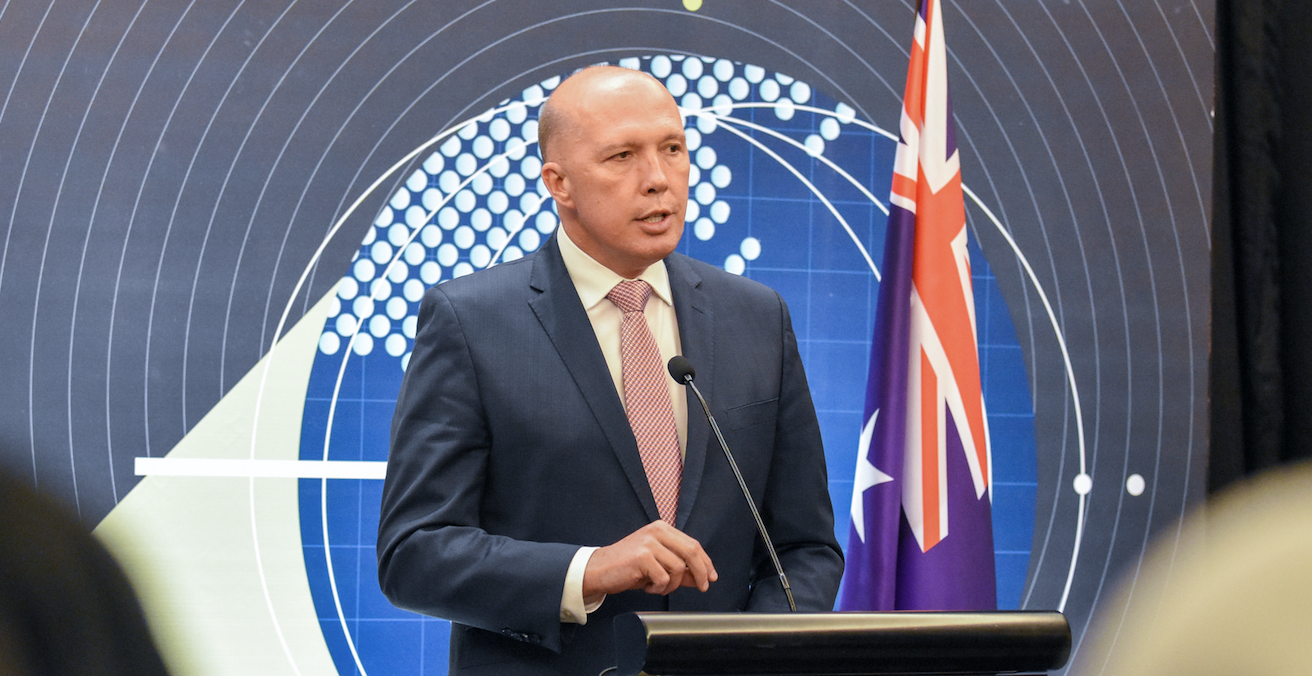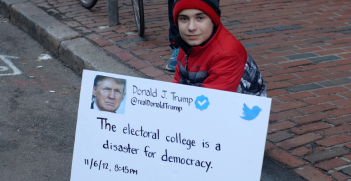ISIS Foreign Fighters: Keep Your Enemies Closer

Despite tough talk on ISIS, many governments are declining to repatriate and prosecute their own citizens who collaborate with terrorist organisations. Evaluating what we really know about returnees means avoiding the repetition of past mistakes and taking the opportunity to create new counter-terrorism resources.
This article was originally published on Australian Outlook on 28 February 2019.
The Trump Administration recently caused further tensions with Europe over its Syria policy by calling upon “other nations to repatriate and prosecute their citizens” who joined ISIS. But, in typical fashion, it seemed to reverse course immediately, decreeing that an American woman and her child are ineligible to return home. The legal maneuvering by the United States over Hoda Muthana, by the UK over Shamima Begum and her infant daughter and by Australia over ISIS recruiter Neil Prakash are understandable political “not in my backyard” evasions. But the evidence shows us that it would be a better strategy to deal with foreign fighters at home.
The buck stops somewhere else
The initial Trump call was a reaction to threats by Kurdish and Syrian rebels who have over 800 foreigners in their custody to release them in response to the withdrawal of Western forces. This development has pushed France and others to step up repatriation efforts, fearing that their own nationals turned loose will flee to join other militants or sneak back in to become extremists at home. Another related problem requiring a long-term solution is the estimated 1300 children who have fled the caliphate and are now in refugee camps. National responses have also varied, with Russia repatriating dozens and Belgian politicians suing to block court orders to allow minors home.
Other countries, fearing the threat of both domestic terrorism and domestic electoral reprisals, have taken harder approaches. Canadian officials rejected the American “suggestion” on returnees. The United Kingdom and Australia have not only refused to bring their own nationals back for trial but have revoked their citizenship – to not only wash their hands of them but to force other countries to assume the burdens of security risk and imprisonment.
In fact, under recent international law, United Nations Security Council Resolutions 2178 and 2396 which were passed in response to ISIS, every country in the world is required not only to prevent its citizens from traveling to join terrorist groups, but to repatriate them and prosecute them. Furthermore, the UN Charter gives member states the “right to remove” foreign nationals from their territory. So, when countries act to block the return of their criminals they are effectively engaging in illegal dumping on their neighbour’s property. Governments are aware of their international obligations to their citizens, and that is why they are getting creative in inventing technicalities to claim that the ISIS immigrants born in their countries weren’t citizens at all.
Exaggerated threats and missed opportunities
These policies violate the spirit of international agreements on foreign fighters. But governments justify them on security grounds by citing research showing that an “average” of approximately ten percent of returnees will become domestic terrorists. This statistic was misinterpreted from a widely-cited 2013 study. Two years later the same researcher found the rate in the ISIS era to be just 0.002 percent, but this update has not had the same impact on policymakers. With estimates that one-third of Westerners have already returned – and some have been back for years – it is increasingly difficult to accept worst-case scenario projections.
My own recent study of foreign fighter returnees shows that almost all attempted plots occur within a year of their return. In other words, identifying potential threats is not the open-ended drain on resources that proponents of stripping citizenship and barring return suggest, it is instead a manageable investment in law enforcement and homeland security.
In-depth research on the history of the hundreds of thousands of individuals who have become foreign fighters shows that handfuls of individuals have become domestic militants after being repatriated. The greater threat appears to come from what happens to those who do not return home because they are prevented from doing so. Arab states preventing jihadis from returning from Afghanistan in the 1990s led to waves of foreign fighters spreading to war zones and failed states around the world. Osama Bin Laden is Exhibit A of the folly of stripping a foreign fighter’s citizenship and then washing your hands and assuming the individual is no longer your problem.
Consider how many media interviews Begum and Muthana are getting. Research on ISIS social media use shows that it is personalities out in the field who draw the most followers – and against whom law enforcement has the least opportunity to intervene. If we are worried about foreign fighters radicalising the next wave of jihadis, we need to recognise that they are better able to do this if they do not return to face the legal system.
What should be done with returnees
At the same time, refusing to prosecute and reintegrate returnees means declining to use a potentially highly effective weapon in the fight against terrorism. Hundreds have already returned from the dystopian caliphate with tales of the lies and barbarity at the foundations of the Islamic State, some suffering from severe PTSD. These returnees are far more credible and powerful spokespersons against ISIS than any government’s counter-narrative public outreach could ever be. The cooperation in counter-extremism efforts should be required of the hundreds of detainees in Syria imploring to return home.
Some countries argue that their foreign fighters do not “deserve” to go home. The desire to punish heinous terrorists is understandable. But, national security decisions should be made by cost-benefit assessments rather than public anger or the political calculations of elected officials. Having governments that use resources effectively and do not repeat old errors is what publics deserve; because it is the strategy that will ultimately make all of us most secure.
To attain victory over ISIS and the jihadi terror movement, it is the ideology of the enemy that must be discredited and destroyed, and disillusioned defectors are the most potent weapon and worth the challenges of repatriation. The old adage “keep your friends close and your enemies closer,” has never been truer.
Dr David Malet is an assistant professor in the American University School of Public Affairs and the author of Foreign Fighters: Transnational Identity in Civil Conflicts (Oxford University Press). He served as a defence and foreign policy aide to former US Senate Majority Leader Tom Daschle before earning his PhD from George Washington University in 2009 with a dissertation on foreign fighter recruitment.
This article is published under a Creative Commons License and may be republished with attribution.




